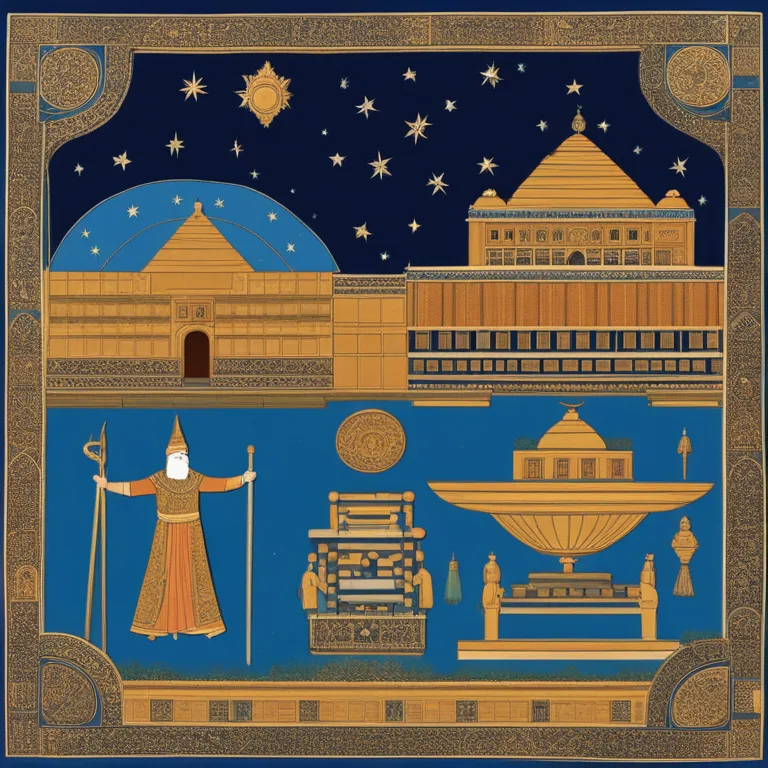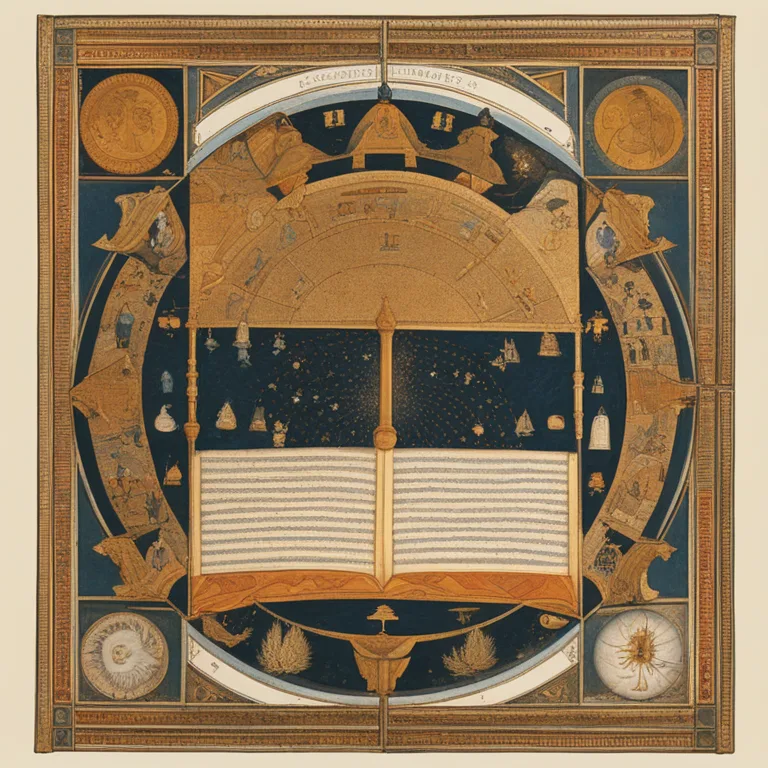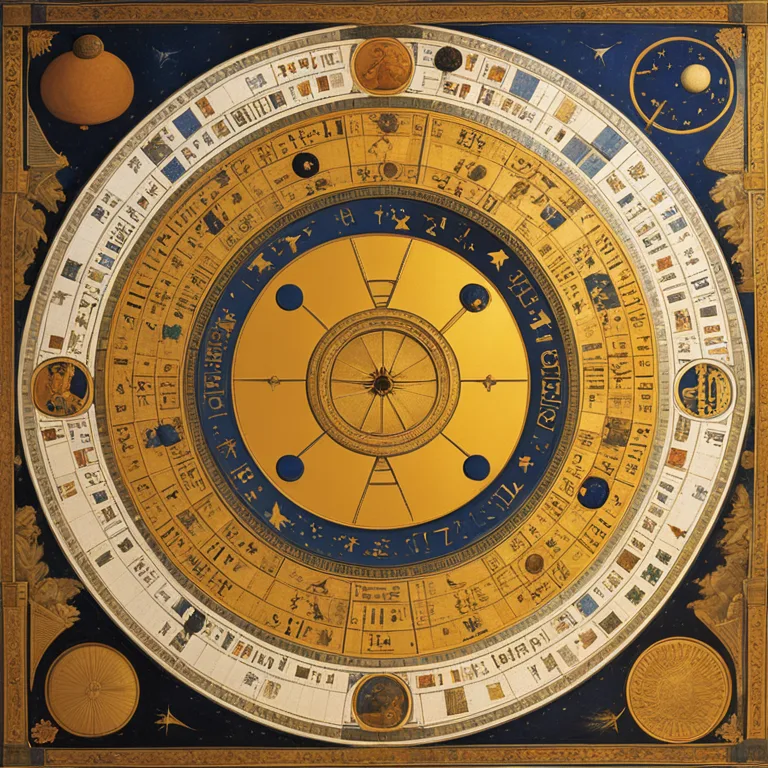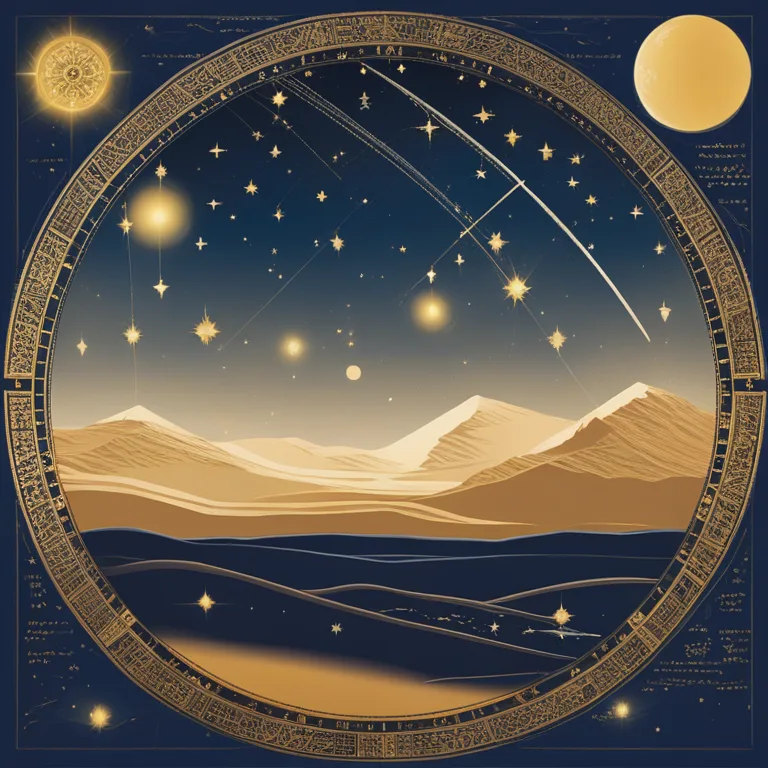
The Origins of Astrology: A Celestial Timeline
Explore the historical journey of astrology from ancient celestial observations to its modern-day popularity and how it became an integral part of human culture.
article by Priya Deshmukh
Tracing Astrology's Ancient Roots
Long before the term 'astrology' was coined, our ancestors looked up to the stars to find patterns and predictions. The art of interpreting celestial bodies' influence on human affairs and natural phenomena began in various cultures independently. Among the earliest civilizations to use astrological practices were the Babylonians, who developed their form of astrology over 3,000 years ago. This early form of astrology was a precursor to what would later evolve into a more recognizable system.

The Mesopotamian Star Catalogs
The breakthrough for astrology happened in Mesopotamia—particularly within Babylonian society. Astrology here was not just a spiritual or esoteric practice but a meticulous scientific endeavor. Priests, who were also skilled astronomers, compiled detailed star catalogs. They meticulously charted planetary movements and believed that these celestial bodies exerted specific influences on individuals and kingdoms alike. During this time, prognostications for the welfare of the state were of prime importance and personal horoscopes came much later.

Hellenistic Influence and the Zodiac
Astrology underwent significant transformation during the Hellenistic period after the conquests of Alexander the Great, which melded Eastern and Western cultures. The famed city of Alexandria in Egypt became a hub for scholars, and it was here that the horoscope as we know it, with its 12 zodiac signs, came into form. The Greeks adopted and adapted the Babylonian astrological techniques, merging them with their own philosophies and astronomical knowledge.

From Egypt to Europe
Greek astrology was codified by Ptolemy in the 2nd century CE with his work "Tetrabiblos," which remained an authoritative astrological text for many centuries. The Romans, known for adapting various aspects of Hellenistic culture, took to astrology with enthusiasm. From Rome, the astrological tradition spread throughout the empire, influencing the esoteric and spiritual aspects of the Middle Ages and Renaissance Europe.

Modern Astrology's Blossoming
Astrology has faced critique and skepticism, particularly during the scientific enlightenment, yet it has continued to flourish. In the late 19th and early 20th centuries, astrology saw a revival accompanied by the Spiritualism movement. With the tumultuous events of the 20th century, people again sought answers in the stars. The emergence of psychological astrology, which blends traditional astrological practices with modern psychological insights, has given the ancient practice new life in contemporary society.
Astrology Today and in 2024
Today, astrology enjoys immense popularity, bolstered by easy access through digital media. As we move into 2024, looking at how current and upcoming celestial configurations, such as the Great Conjunctions, can give us insights into potential trends and shifts both on a personal and collective level. The ongoing transitions of the outer planets like Pluto, Neptune, and Uranus are particularly poignant, often correlating with generational changes.
Published: 12/29/2023
Modified: 12/29/2023
More predictions
Come back here soon to learn more about yourself and your future


The Rhythms of Your Birth Chart
Delve into the significance of your birth chart and what the celestial patterns at your birth reveal about your potential, personality, and life path.


Your Birth Chart: Cosmic Blueprint Explored
Delve into the insights of your astrological birth chart and discover the cosmic influences that shape your personality, path, and potential.


The Power of Biorhythms: A Guide
Delve into the significance of your birth chart to comprehend your astrological imprint and personal destiny as written in the stars.